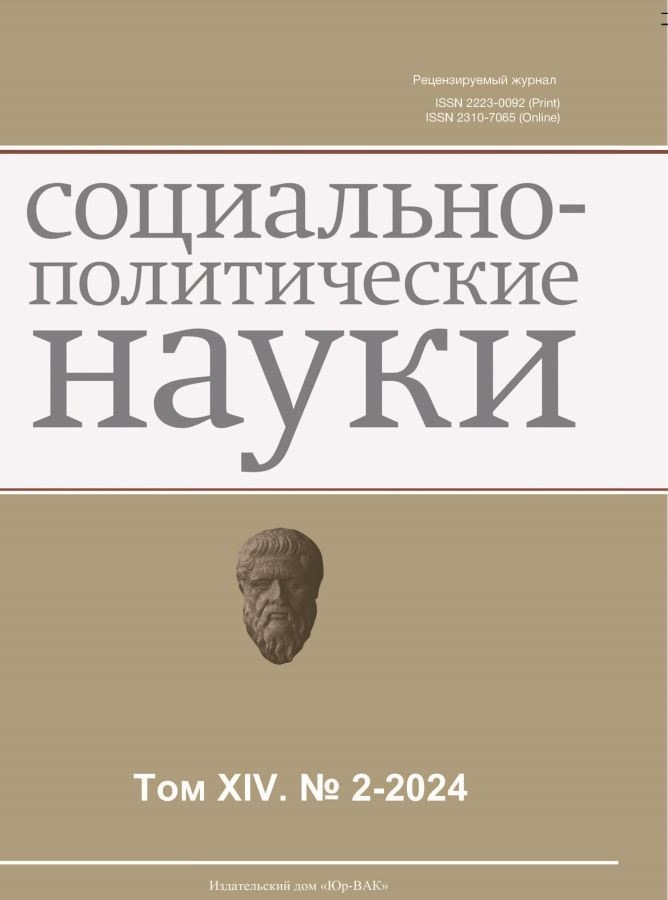Digital Fraud: What Students Know about it (Experience in Conducting a Focus Group Interview)
- Авторлар: Dadaeva T.M.1, Burkova S.A.1
-
Мекемелер:
- Ogarev Mordovian State University
- Шығарылым: Том 14, № 2 (2024)
- Беттер: 131-140
- Бөлім: Theory, Methodology, and History of Sociology
- URL: https://journals.eco-vector.com/2223-0092/article/view/633865
- DOI: https://doi.org/10.33693/2223-0092-2024-14-2-131-140
- EDN: https://elibrary.ru/GZOGHN
- ID: 633865
Дәйексөз келтіру
Аннотация
The article, based on statistical data and sociological research from a focus group interview conducted among students, updates the problem of cyber fraud. The dynamics of stolen funds of Russians over five years, the level of awareness of students about cyber fraud, the types and forms of fraud schemes that informants have encountered are shown. The most common forms of fraud are deception associated with the transfer of money for a purchase/service on the Internet with or without priority links, phishing sites and hacking of a page (account), with the subsequent demand for money for its return. This may be due to the fact that young people are active users of social media (social networks, instant messengers, games, marketplaces, etc.) and most often use online shopping. Next come less popular forms of cyber fraud, such as “raising” funds for SVO participants, the “anti-cafe” scheme, and telephone calls under the “relative in need” scheme. A number of signs to identify a fraudster (assertiveness, aggressiveness in response to the desire to check information, commanding tone, top secrecy during a call, etc.) have been identified. The reasons and factors (internal and external) contributing to the deception of a potential victim have been established (low awareness, lack of experience in dealing with digital fraud schemes, personal qualities (excessive gullibility, pliability, fear of public condemnation, greed), the use of external factors (SVO), social technologies engineering by attackers). In the context of simulated situations of cyber fraud, algorithms for the safe behavior of potential victims were identified, and students proposed measures to prevent digital fraud.
Толық мәтін
Авторлар туралы
Tatiana Dadaeva
Ogarev Mordovian State University
Хат алмасуға жауапты Автор.
Email: dadaeva13@mail.ru
ORCID iD: 0000-0002-9749-9244
Scopus Author ID: 8591653500
ResearcherId: AAN-4148-2021
Dr. Sci. (Sociol.), Associate Professor; Professor, Department of Sociology and Social Work
Ресей, SaranskSvetlana Burkova
Ogarev Mordovian State University
Email: dadaeva13@mail.ru
3rd-Year Student of Sociology
Ресей, SaranskӘдебиет тізімі
- Vasilenko L.A., Meshcheryakova N.N. Sociology of digital society: monograph. Tomsk: Tomsk Polytechnic University Publ. House, 2021. 226 p. ISBN: 978-5-4387-1043-1.
- Goncharova M.N., Perevalov A.M., Heimbichner V.R. Internet fraud as a threat to economic security. Smart Digital Economy. 2022. No. 2 (2). Pp. 116–121. (In Rus.)
- Dobryshin M.M., Zakalkin P.V. Model of a “phishing” type of computer attack on a local computer network. Voprosy kiberbezopasnosti. 2021. No. 2 (42). Pp. 17–25. (In Rus.) doi: 10.21681/2311-3456-2021-2-17-25.
- Zhmurov D.V., Korobeev A.I., Protasevich A.A. Cybervictimology. First national study. Russian Investigator. 2022. No. 11. Pp. 49–59. (In Rus.)
- Kabanov P.A. Victims of cyberfraud as one of the objects of modern cyber victimology: A brief statistical analysis of criminal victimization rates 2021–2022. Victimology. 2023. No. 10 (1). Pp. 17–28. (In Rus.) doi: 10.47475/2411-0590-2023-10102.
- Komlev Yu.Yu. Digitalization, networkization of post-modern society and the development of digital criminology and deviantology. Bulletin of the Kazan Law Institute of MIA of Russia. 2020. Vol. 11. No. 1. Pp. 31–40. (In Rus.) doi: 10.24420/KUI.2020.39.1.004.
- Krasovskaya N.R., Gulyaev A.A. To the question of cyberfraud. Bulletin Udm. Univ. Sociology. Political Science. International Relations. 2022. No. 6 (1). Pp. 133–138. (In Rus.) doi: 10.35634/2587-9030-2022-6-1-133-138.
- Mayorov A.V. Victimization security of society in modern conditions. Bulletin of Prikamsky Social Institute. 2023. No. 1 (94). Pp. 8–16. (In Rus.).
- Revenkov P.V., Oshmankevich K.R., Berdyugin A.A. Phishing schemes in the banking sector: Recommendations to Internet users on protection and development of regulatory tasks. Finance: Theory and Practice. 2021. No. 25 (6). Pp. 212–226. (In Rus.) doi: 10.26794/2587-5671-2021-25-6-212-226.
- Sergeyev A.Yu., Shirokova O.V. Fraud in a digital society in the context of social change. Digital Sociology. 2023. Vol. 6. No. 1. Pp. 59–71. (In Rus.) doi: 10.26425/2658-347X-2023-6-1-59-71.
- Starostenko O.A. Regularities of the formation and development of cyber fraud in Russia and abroad. Bulletin of the Ural Law Institute of the Ministry of the Interior of Russia. 2021. No. 1. Pp. 138–143. (In Rus.) URL: https://cyberleninka.ru/article/n/zakonomernosti-stanovleniya-i-razvitiya-kibermoshennichestva-v-rossii-i-za-rubezhom
- Baaf P.O. Tools for cyber forensics. Book chapter series on research nexus in IT, law, cyber security & forensics. 2022. Pp. 285–290. doi: 10.22624/AIMS/CRP-BK3-P46.
- Chen S., Gao C., Jiang D. et al. The spatiotemporal pattern and driving factors of cyber fraud crime in China. ISPRS International Journal of Geo-Information. 2021. Vol. 10. No. 12. P. 802. doi: 10.3390/ijgi10120802.
- Halder D. Cyber victimology: Decoding cyber-crime victimization. New York: Routledge, 2021. 120 р. doi: 10.4324/9781315155685.
- Reveron D.S., Savage J.E. Cybersecurity convergence: Digital human and national security. Orbis. 2020. No. 64 (4). Pp. 555–570. doi: 10.1016/j.orbis.2020.08.005.
- Grassegger T., Nedbal D. The role of employees’ information security awareness on the intention to resist social engineering. Procedia Computer Science. 2021. No. 181. Pp. 59–66. doi: 10.1016/j.procs.2021.01.103.
- Jaiswal Sh., Patil H. The cyber forensics and the IPC laws for cyber criminal’s. Journal of Cyber Security, Privacy Issues and Challenges. 2022. Vol. 1. No. 3. Рp. 1–8. doi: 10.46610/JCSPIC.2022.v01i03.001.
- Manivannan A., Moorthy D. Cyber attacks in the banking industry. Fern, Barrow, 2020. doi: 10.13140/RG.2.2.16664.01282.
- Salloum S., Gaber T., Vadera S., Shaalan K. Phishing email detection using natural language processing techniques: A literature survey. Procedia Computer Science. 2021. No. 189. Pp. 19–28. doi: 10.1016/j.procs.2021.05.077.
- Vincent A. Don’t feed the phish: how to avoid phishing attacks. Network Security. 2019. No. 2. Pp. 11–14. DOI: 10.1016/S 1353-4858(19)30022-4.
- Wickramanayake B., Geeganage D.K., Ouyang C., Xu Y. A survey of online card payment fraud detection using data mining-based methods. ArXiv. 2020. doi: 10.48550/arXiv.2011.14024.
Қосымша файлдар








